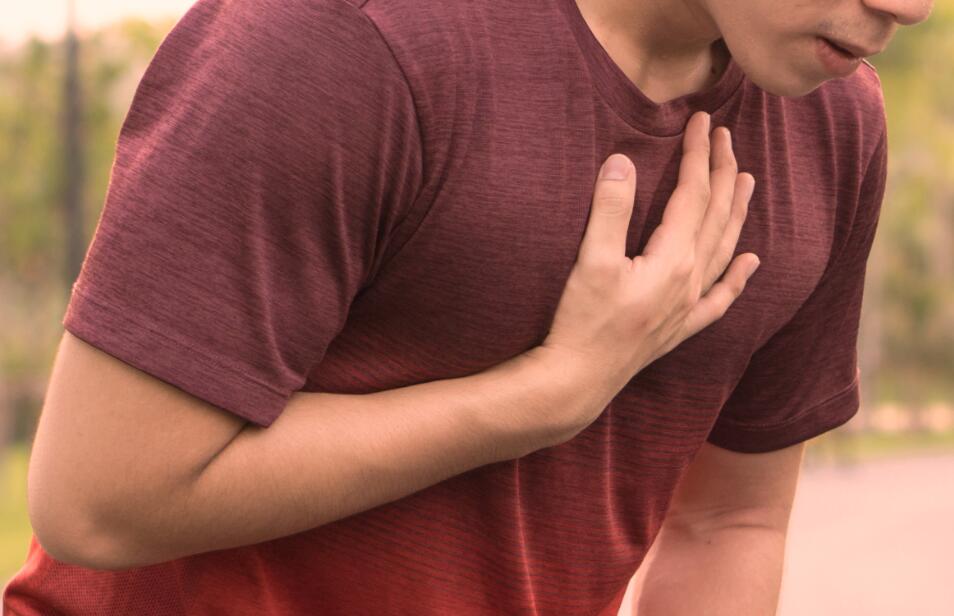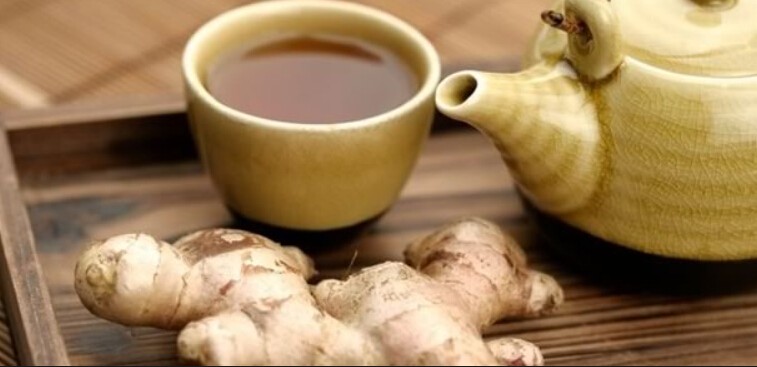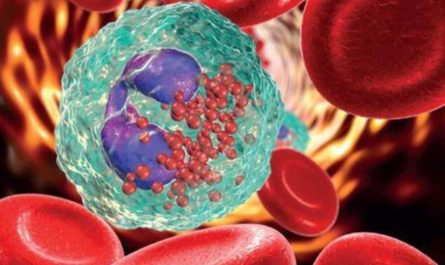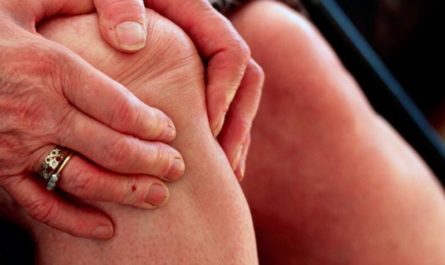Shortness of breath is also called dyspnea. It is a sensation when you start to feel like you cannot get enough air into your lungs, no matter how hard you try. This feeling could be short-lived or last for some time. In most cases, shortness of breath usually comes from exercise, stress, or asthma. However, it may also be a sign of many medical conditions. This article will discuss shortness of breath symptoms, causes, and some best home remedies.

Symptoms of Shortness of Breath
Common symptoms of shortness of breath include:
1. Dyspnea: Dyspnea, or shortness of breath, is a common symptom of respiratory diseases. It is described as a feeling of being unable to get enough air into the lungs. Various conditions can cause it and are often accompanied by chest tightness, wheezing, and a feeling of breathlessness.
2. Wheezing: Wheezing is a high–pitched whistling sound heard when breathing. It is caused by narrowed airways due to bronchoconstriction, inflammation, or a foreign body blocking the airways. Wheezing is often associated with shortness of breath and chest tightness.
3. Chest Tightness: Chest tightness is a common symptom of shortness of breath and can be caused by an underlying condition. It can be accompanied by a feeling of pressure or pain in the chest, as well as a feeling of breathlessness.
4. Palpitations: Palpitations are a feeling of rapid or irregular heartbeats that can be caused by conditions such as anemia, heart failure, or overactive thyroid. This can also be caused by anxiety and can be accompanied by shortness of breath.
5. Fatigue: Fatigue is a common symptom of shortness of breath and can be caused by an underlying condition such as anemia, heart failure, or chronic obstructive pulmonary disease (COPD). It can also be caused by activity levels that are too high or too low.
12 Common Causes of Shortness of Breath
1. Cardiovascular Issues
Cardiovascular problems are one of the leading causes of shortness of breath. Conditions like heart failure, coronary artery disease, arrhythmias, and heart valve disorders can all lead to breathlessness.
Heart failure occurs when the heart is unable to pump blood effectively, leading to a buildup of fluid in the lungs and shortness of breath.
In coronary artery disease, narrowed or blocked blood vessels restrict blood flow to the heart, which can manifest as breathlessness during physical activity or stress.
Arrhythmias, irregular heart rhythms, can affect the heart’s pumping ability and result in dyspnea. Moreover, heart valve disorders can impair blood flow and cause symptoms like breathlessness and fatigue.
2. Respiratory Infections
Respiratory infections, such as pneumonia, bronchitis, and COVID-19, can cause shortness of breath due to inflammation and fluid buildup in the lungs.
Pneumonia is an infection that affects the air sacs in the lungs, causing them to fill with fluid and reducing the lungs’ ability to exchange oxygen. Bronchitis, an inflammation of the bronchial tubes, can lead to excessive mucus production and narrowing of airways, resulting in difficulty breathing.
The COVID-19 virus primarily affects the respiratory system, leading to lung inflammation. This can cause severe shortness of breath, particularly in severe cases.
3. Asthma
Asthma is a chronic respiratory condition characterized by inflammation and narrowing of the airways. When exposed to triggers like allergens, smoke, or cold air, individuals with asthma may experience shortness of breath, wheezing, and coughing.
The airway constriction in asthma makes it difficult for air to move in and out of the lungs, leading to the characteristic symptoms.
4. Chronic Obstructive Pulmonary Disease (COPD)
COPD is an umbrella term for a group of progressive lung diseases, including emphysema and chronic bronchitis. These conditions lead to the obstruction of airflow in the lungs, causing breathlessness and persistent coughing.
Smoking is the primary cause of COPD, but long-term exposure to air pollutants or workplace hazards can also contribute to its development.
5. Anemia
Anemia occurs when there is a deficiency of red blood cells or hemoglobin in the blood. Hemoglobin is responsible for carrying oxygen from the lungs to the body’s tissues.
In anemic individuals, the reduced oxygen-carrying capacity of the blood can lead to shortness of breath, particularly during physical exertion.
6. Pulmonary Embolism
A pulmonary embolism is a serious condition wherein a blood clot (usually from the legs) travels to the lungs, obstructing blood flow.
This sudden blockage can cause severe shortness of breath and chest pain and even be life-threatening. Immediate medical attention is crucial to prevent further complications.
7. Obesity
Obesity can strain the respiratory system, leading to reduced lung function and shortness of breath.
Excess body weight puts pressure on the diaphragm and lungs, making breathing more difficult, especially during physical activity.
8. Panic Attacks and Anxiety
Intense emotions like panic attacks and anxiety can cause hyperventilation, where individuals breathe rapidly and shallowly.
This over-breathing can disrupt the balance of carbon dioxide and oxygen in the blood, leading to breathlessness and a feeling of suffocation.
9. Allergies
Allergic reactions can cause respiratory symptoms like shortness of breath, especially in individuals with asthma or allergies to airborne substances. Allergens trigger an immune response that results in airway inflammation and constriction.
10. Gastroesophageal Reflux Disease (GERD)
GERD is a digestive disorder where stomach acid flows back into the esophagus, irritating the airways and triggering symptoms like shortness of breath, coughing, and wheezing. The acid can also cause spasms in the airways, further contributing to breathing difficulties.
11. Interstitial Lung Disease
This group of lung disorders involves inflammation and scarring of lung tissues, making breathing challenging. Conditions like idiopathic pulmonary fibrosis and sarcoidosis are examples of interstitial lung diseases that can lead to progressive shortness of breath.
12. Environmental Factors
Exposure to pollutants, smoke, strong odors, or high altitudes can trigger shortness of breath in sensitive individuals. Polluted air can irritate the airways and cause inflammation, making breathing more difficult for some people.

Home Remedies for Shortness of Breath
1. Hydration
Staying adequately hydrated is crucial for maintaining overall health, including optimal respiratory function.
Drinking plenty of water helps keep the mucus membranes in the respiratory tract moist, making it easier to breathe. Aim to drink at least 8-10 glasses of water daily to stay hydrated and promote healthy lung function.
2. Deep Breathing Exercises
Deep breathing exercises are an excellent way to relax the respiratory muscles and increase lung capacity. One effective technique is diaphragmatic breathing, also known as belly breathing.
To practice this exercise, sit or lie down comfortably, place one hand on your chest and the other on your abdomen, and take slow, deep breaths, making sure your abdomen rises and falls with each breath.
3. Steam Inhalation
Steam inhalation is a time-tested remedy that helps relieve congestion and open up the airways. Fill a bowl with hot water, and add a few drops of essential oil like eucalyptus or peppermint.
Then lean over the bowl with a towel covering your head, and inhale the steam deeply. This soothing practice can alleviate shortness of breath and ease breathing difficulties.
4. Ginger Tea

Ginger has potent anti-inflammatory properties that can help reduce inflammation in the respiratory system, making it easier to breathe. Prepare a cup of ginger tea by simmering fresh ginger slices in hot water for 10 minutes. Sip this warming beverage to experience its therapeutic benefits.
5. Honey and Lemon
The combination of honey and lemon is a well-known remedy for soothing a sore throat, but it also offers relief for shortness of breath.
Mix a tablespoon of honey with a few drops of lemon juice in warm water and drink it regularly. The antimicrobial properties of honey and vitamin C in lemon can help clear respiratory passages.
6. Turmeric Milk
Turmeric, a potent anti-inflammatory spice, has been used for centuries to alleviate respiratory issues.
Combine a teaspoon of turmeric powder with a cup of warm milk and a dash of black pepper to enhance its absorption. Sip this golden elixir before bedtime to promote better breathing and a good night’s rest.
7. Aromatherapy
Aromatherapy can be a valuable tool for easing shortness of breath and promoting relaxation. Essential oils like lavender, chamomile, and peppermint have calming and decongestant properties.
Use a diffuser or add a few drops of these oils to a warm bath to enjoy their therapeutic benefits.
8. Stay Active
Regular physical activity is crucial for maintaining healthy lungs and cardiovascular function. Engage in low-impact exercises like walking, swimming, or yoga to improve lung capacity and respiratory efficiency.
Always consult a healthcare professional before starting any new exercise regimen, especially if you have underlying health conditions.
9. Air Purification
Indoor air pollution can exacerbate respiratory issues. Invest in a good-quality air purifier to remove allergens, dust, and pollutants from the air, creating a healthier breathing environment. Keep your living space well-ventilated to ensure a steady flow of fresh air.
10. Maintain a Healthy Weight

Excess weight can put additional pressure on the lungs and chest, making breathing more difficult. Maintain a healthy weight through a balanced diet and regular exercise to alleviate the strain on your respiratory system and improve overall breathing.
Medications for shortness of breath
1. Albuterol
Albuterol is a type of bronchodilator used to open up the airways and relieve shortness of breath. It works by relaxing the muscles of the airways, allowing for better airflow. It is available in both pill and inhaler forms.
2. Corticosteroids
Corticosteroids are a type of steroid hormone that can be used to reduce inflammation in the airways. This can reduce symptoms of shortness of breath. Corticosteroids can be taken in pill form or administered via an inhaler.
3. Theophylline
Theophylline is a type of medication used to relax the muscles of the airways and improve breathing. It can be taken in pill form or administered via an inhaler.
4. Levalbuterol
Levalbuterol is a type of bronchodilator used to open up the airways and relieve shortness of breath. It works by relaxing the muscles of the airways, allowing for better airflow. It is available in inhaler form.
FAQs
1. Can shortness of breath be a sign of a heart attack?
Yes, sudden and severe shortness of breath, especially accompanied by chest pain, could indicate a heart attack. Seek immediate medical attention.
2. Can shortness of breath be a sign of a serious medical condition?
Shortness of breath can be caused by various factors, some of which may be serious medical conditions. It is essential to seek medical attention if you experience persistent or worsening breathlessness, especially if accompanied by other concerning symptoms.
3. When should I seek immediate medical attention for shortness of breath?
If you experience sudden and severe shortness of breath, chest pain, fainting, or bluish lips or fingertips, seek immediate medical attention, as it could indicate a medical emergency.
4. Can anxiety or stress cause shortness of breath?
Yes, anxiety and stress can trigger episodes of shortness of breath. Learning relaxation techniques, such as deep breathing exercises, can help manage these symptoms.
5. What lifestyle changes can I make to reduce shortness of breath?
Lifestyle changes like quitting smoking, avoiding exposure to pollutants, staying physically active, and maintaining a healthy weight can significantly improve respiratory health.
6. Is shortness of breath a symptom of COVID-19?
Shortness of breath can be a symptom of COVID-19, along with other respiratory symptoms. If you suspect you have been exposed to the virus or experience any symptoms, get tested and follow the recommended guidelines.






